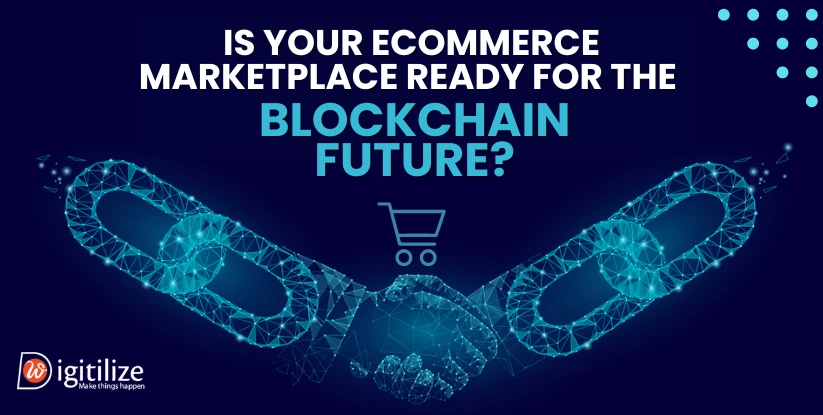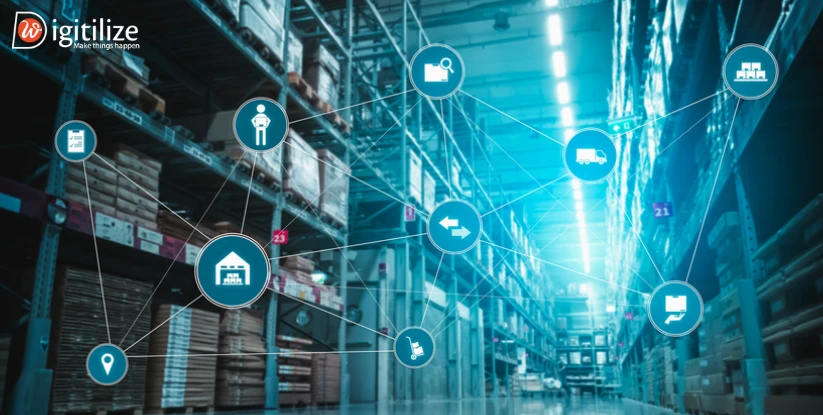Is Your Ecommerce Marketplace Ready for the Blockchain Future?
 We are already into 2024, and now, the most important question every ecommerce market owner encounters is, is your ecommerce marketplace ready for the future of ecommerce technology?
The entire economy is changing because of revolutionary blockchain technology. The technology has effectively revolutionise the finance industry and is now set to completely disrupt the eCommerce market.
Ecommerce is one of the few industries that may make use of this cutting-edge technology to improve system transparency, ease financial transactions, and expedite corporate processes. One of the most profitable and quickly expanding sectors is ecommerce. A decentralised economy will be made possible by the integration of blockchain in ecommerce technology in this industry, which will also change how consumers purchase online.
Experts predict that the notion of decentralised commerce will become a reality with the use of blockchain technology in the ecommerce sector. Users can handle transactions in a decentralised ecommerce marketplace without the need for a central governing body.
We are already into 2024, and now, the most important question every ecommerce market owner encounters is, is your ecommerce marketplace ready for the future of ecommerce technology?
The entire economy is changing because of revolutionary blockchain technology. The technology has effectively revolutionise the finance industry and is now set to completely disrupt the eCommerce market.
Ecommerce is one of the few industries that may make use of this cutting-edge technology to improve system transparency, ease financial transactions, and expedite corporate processes. One of the most profitable and quickly expanding sectors is ecommerce. A decentralised economy will be made possible by the integration of blockchain in ecommerce technology in this industry, which will also change how consumers purchase online.
Experts predict that the notion of decentralised commerce will become a reality with the use of blockchain technology in the ecommerce sector. Users can handle transactions in a decentralised ecommerce marketplace without the need for a central governing body.
Comprehending Blockchain Technology
Let’s define the Blockchain before delving into its nuances concerning ecommerce. Blockchain is a decentralised digital vault that operates via a network of computers and offers a transparent and safe record-keeping mechanism. In contrast to traditional record-keeping methods, Blockchain utilises a distributed ledger approach that enables each participant to have a copy of the whole ledger. An unchangeable chain is created by grouping all of the transactions into blocks and connecting them in chronological order. Blockchain for online marketplaces are collections of blocks that guarantee the immutability and integrity of data. Blockchain ensures data by using cryptographic algorithms. Upon initiation, every transaction undergoes a verification procedure conducted by a network of nodes. The transaction is bound and added to a block using a unique cryptographic hash upon verification. Following that, this block joins to the one before it, creating a continuous series of blocks. Because the Blockchain is decentralised, no one person can exert total control over the network. The network’s participants agree on a consensus procedure to make modifications to visible transactions. One of the best security features that keeps Blockchain safe from manipulation and fraud is this one. Future-proofing ecommerce promises to solve important problems including data security, supply chain transparency, and payment process efficiency. It creates an atmosphere and generates trust so that customers feel completely confident in the goods they have purchased and the companies they deal with.Benefits of blockchain in Ecommerce Marketplace Development

-
Quicker Payments
-
Being transparent
-
Verified Reviews
-
Get Rid of Middlemen
-
Increase Sales
-
Improve Your Purchasing Experience
-
Data Security
-
Simple drop shipment
Current Ecommerce Challenges and Blockchain Solutions

-
Privacy and Data Security Issues
-
Insufficient Transparency in the Supply Chain
-
Payment Processing Inefficiencies
-
Products That Are Not Real

